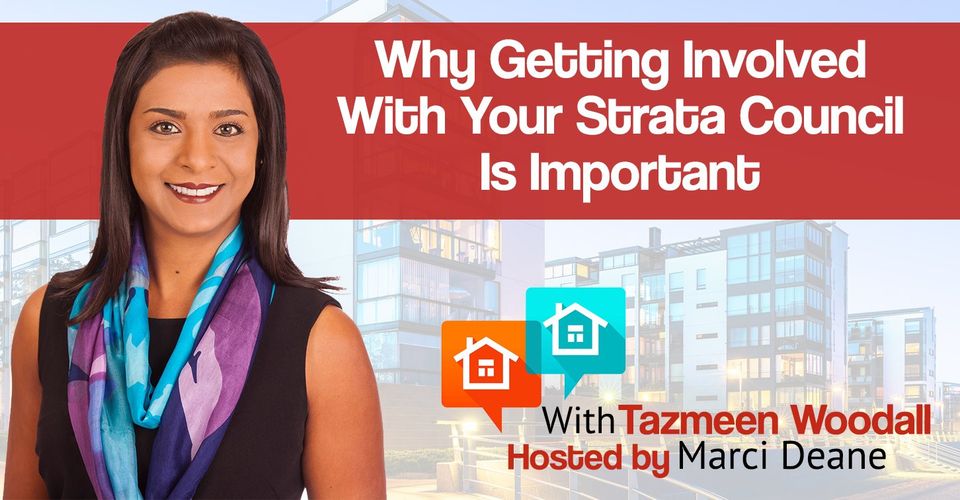018: Tazmeen Woodall Explains Why Getting Involved With Your Strata Council Is Important
Marci Deane
talks with Tazmeen Woodall
of RE/MAX Crest Realty
in North Vancouver, BC about the importance of going to your strata meetings.
Introduction
Tazmeen Woodall is a Realtor with RE/MAX Crest Realty in Vancouver, BC. With over 21 years of experience in the real estate business, Tazmeen is now a leading expert on strata properties.
She specializes in working with new home buyers, simplifying the process and ensuring her clients understand their options.
Listen to Tazmeen’s previous interview with us here.
Key Points
- [1:10] What are some of the biggest mistakes that you see strata corporations make?
- [1:35] There are new people on the strata council all the time and if the meeting minutes are lacking, it can hurt the whole building.
- [2:35] If the minutes from the meeting don’t look right to you, what should you do?
- [3:00] Your annual strata meetings are very important. You should always try to attend.
- [4:30] You are required by law to get the minutes of the annual meeting within 48 hours.
- [5:55] A lot of buildings will do special assessments in phases.
- [7:45] What are some good practices you have seen strata corporations do?
- [8:33] Some strata corporations might have a really low contingency fund. This might be due to the fact that all the work has already been done. Coincidentally, strata with a high contingency fund might be a red flag as they have a lot of work to do.
- [9:25] Do buildings need to provide a fee depreciation report ?
- [11:05] I encourage all my clients to get on their council if they have any issues or concerns with the building.
- [11:38] Being on council can put potential buyers at ease when the time comes for you to sell your unit.
Contact
- Web: vancouverstratainfo.com
- Mobile: 604-760-7005
- Office: 604-988-2449
- Fax: 604-988-2493
- Toll Free: 800-665-1455
- Email: tazmeen@tazmeenwoodall.com
Share














